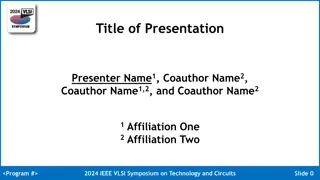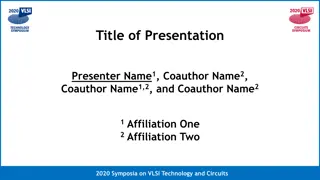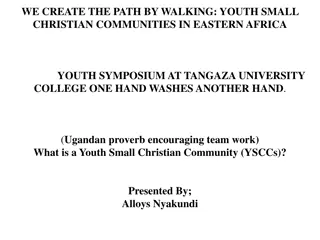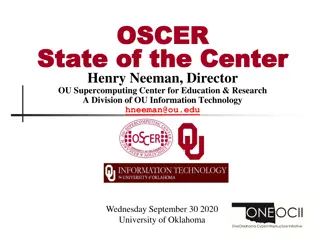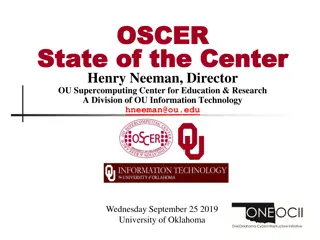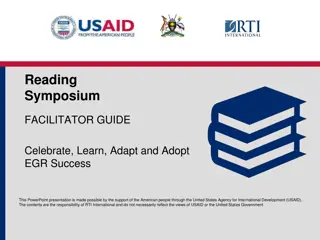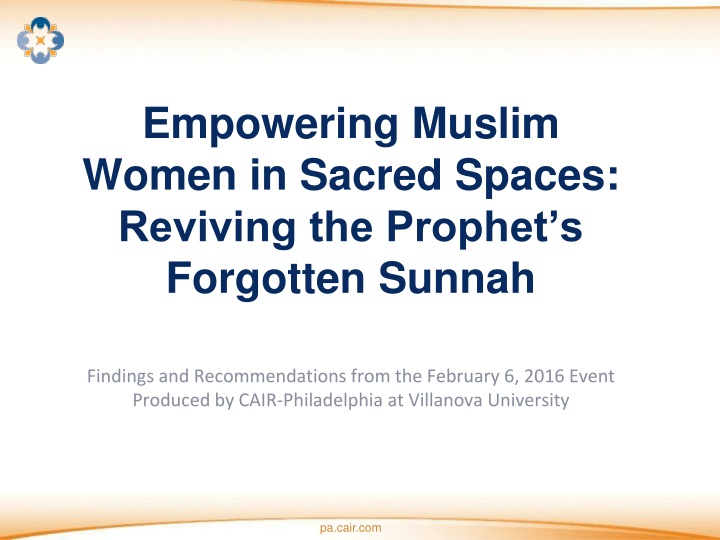
Empowering Muslim Women in Sacred Spaces: Findings & Recommendations
Explore key findings and recommendations from the event organized by CAIR-Philadelphia at Villanova University, focusing on empowering Muslim women in sacred spaces. Discover insights on women's leadership, mosque accommodations, and ways to enhance women's participation in mosque life.
Download Presentation

Please find below an Image/Link to download the presentation.
The content on the website is provided AS IS for your information and personal use only. It may not be sold, licensed, or shared on other websites without obtaining consent from the author. If you encounter any issues during the download, it is possible that the publisher has removed the file from their server.
You are allowed to download the files provided on this website for personal or commercial use, subject to the condition that they are used lawfully. All files are the property of their respective owners.
The content on the website is provided AS IS for your information and personal use only. It may not be sold, licensed, or shared on other websites without obtaining consent from the author.
E N D
Presentation Transcript
Empowering Muslim Women in Sacred Spaces: Reviving the Prophet s Forgotten Sunnah Findings and Recommendations from the February 6, 2016 Event Produced by CAIR-Philadelphia at Villanova University pa.cair.com
Key Findings There is ample support in the tradition of Prophet Muhammad (s) for the active participation and leadership of women in the mosque. There is clear authority which prohibits discouraging women from mosque attendance. Lack of women s leadership and accommodation results in the alienation of children from area mosques. pa.cair.com
Key Findings Women are generally not encouraged to engage in, and are sometimes prohibited from, leadership roles and active participation in area mosques. Notable exceptions: congregations associated with W. Deen Mohammed; mosque in Delaware started by moms as a stand- alone Islamic school. Women frequently have inadequate, inaccessible, and poorly maintained entrances, restrooms, and prayer spaces in area mosques. pa.cair.com
Recommendations on Womens Empowerment How do we bring women into mosque life, including prayer space, leadership positions, and programming? 1. Leadership Allocate board positions for women Elect, do not appoint, board Create women s advisory board to articulate women s interests, issues, and needs Provide non-profit leadership training to board and imam Provide training on gender equity to board and imam Employ best practices from model mosques (Masjidullah, Delaware Mosque run by women) Set guidelines for proper adab in the mosque including respect for women s contributions and voices pa.cair.com
Recommendations on Womens Empowerment 2. Space Create space to pray in the main musalla without a barrier, and a separate space for those who prefer it Consider side-by-side prayer spaces with a short barrier or children s space in between Create spaces for women to organize after prayer Provide childcare during programming and meetings Maintain women s spaces and entrances; provide safe, well-lit front entrances for women Consider switching men s and women s entrances and prayer spaces to demonstrate the problems and promote understanding Provide appropriate women s wudhu spaces and adequate restrooms for women with children Provide comfortable spaces for nursing mothers and women s hygiene products in restrooms pa.cair.com
Recommendations on Womens Empowerment 3. Programming Offer girls and women s halaqas and study circles Women should get opportunity to study/discuss/ask questions from/with Imam Create committee of women to welcome female newcomers and converts Provide for congregants basic human needs when necessary: clothing, food, and social services Provide ESL classes Value and make reference to Muslim women scholars and leadership in khutbahs and programming Create a women s mentorship program for newcomers, converts, or those who would like more connection Focus on intention; provide kind and appropriate opportunities to learn; avoid alienating or excluding others Hold service days and cultural days pa.cair.com
Recommendations on Youth Engagement How can we increase the participation of families and youth in mosque life? 1. Leadership Create a youth advisory position on the board and a youth advisory committee to the board Actively seek youth input on critical issues Create innovative youth leadership opportunities i.e. invite young professionals to share experiences, invite youth to create charitable programs (emulate Amana Foundation model) Create youth mentorship programs to develop community leaders Encourage youth to take turns shadowing the imam to learn to lead prayer, do the adhan, and lead dhikr (girls and boys) pa.cair.com
Recommendations on Youth Engagement 2. Space Make space for young people to participate in arts, sports, and cultural activities Keep the mosque open and clean Create space where children can play, interact, and be children Create accessible restrooms and wudhu areas for children pa.cair.com
Recommendations on Youth Engagement 3. Programming Create youth halaqas and book groups Have an open forum to address youth needs or interests once a month Have a youth khutbah suggestion box Designate a youth coordinator to help guide youth efforts pa.cair.com
Next Steps In recognition of the central position of the mosque in meeting the spiritual and social needs of all American Muslims, Coordinators and Participants urge area Muslim Leaders to: discuss these recommendations to mosque boards, community leaders, and community members, advocate for the implementation of recommendations, record and share your activities to empower women in the mosque, and continue the discussion on how our mosques can better serve women and youth. pa.cair.com

